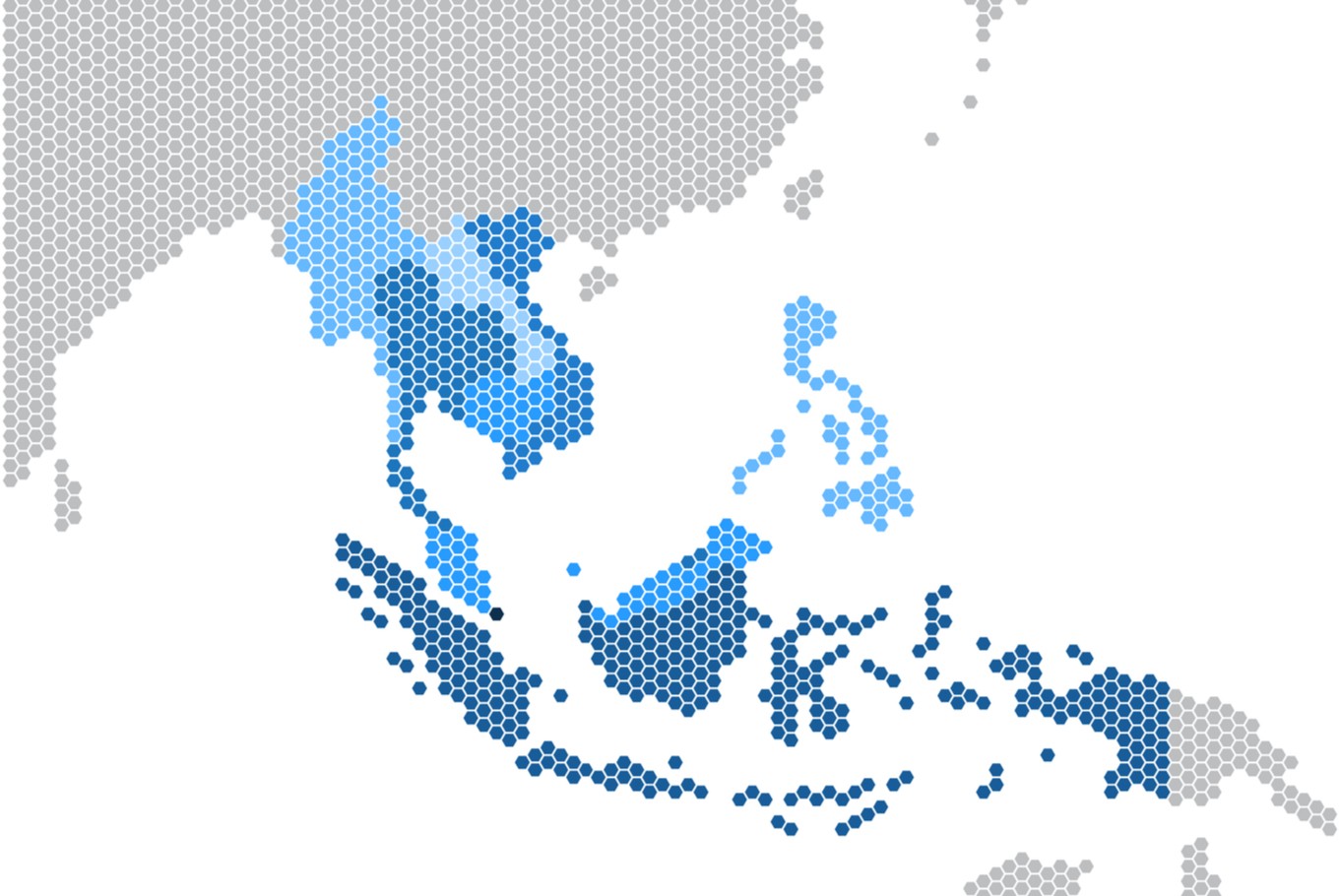Popular Reads
Top Results
Can't find what you're looking for?
View all search resultsPopular Reads
Top Results
Can't find what you're looking for?
View all search resultsRI largely absent from US govt Indo-Pacific strategy paper
Indonesia and other nations from Southeast Asia have warranted scarce mention in the United States' grand strategy for the Indo-Pacific region, which was declassified last week at the tail end of the Donald Trump administration.
Change text size
Gift Premium Articles
to Anyone
T
he United States has revealed classified information detailing its grand strategy for the Indo-Pacific, which was supposed to remain secret until the year 2042.
Revelations from the document could pose a new concern for Indonesia and the wider Southeast Asia region, experts have said, as the US strategy mainly focuses on China.
In a declassified national security document published last week, the US government revealed the details of an Indo-Pacific strategy that included “preventing China from establishing new, illiberal spheres of influence”.
The 10 partially redacted pages set out the US’ strategic priorities in the Indo-Pacific. It was drafted in 2017 and endorsed by Trump the following year.
The Indo-Pacific concept is a strategic reimagining of the Asia-Pacific in terms that are interpreted in different ways by different countries and interests. One common interpretation tries to take the focus away from China and its increasing influence in the wider region. The declassified document confirms this.
Upon the US strategy’s release, a briefing prepared by the US National Security Council endorsed the move as a statement of “enduring commitment” to the region.
Now, with information that was previously declared “not for foreign nationals”, experts question how deep that commitment runs and to whom it is directed.
“This document was light on Southeast Asia overall and only had a passing reference to Indonesia,” Lowy Institute Southeast Asian program director Ben Bland wrote in a statement to The Jakarta Post on Friday.
In a read-through of the 10 pages, the word Indonesia is found once and the sub-heading “Southeast Asia & the Pacific Islands” slowly comes in on page nine.
Beyond paper, Bland feels this “lack of attention” is translated to a more worrying concern in a reality where the Trump administration was largely absent from strategic events and important diplomatic work being done in the region.
‘Hopefully, the [Joe] Biden administration will pay more heed to Indonesia, as Southeast Asia’s biggest nation, and the rest of the region, attending major meetings, filling key posts with experienced officials and listening more to the region’s needs, rather than lecturing it on what the US wants,” the Australia-based scholar said.
The Indonesian government has so far declined to comment on the declassified document.
The sentiment of dissatisfaction with the scarce reference and action in the region was shared by a senior researcher at the Centre for Strategic and International Studies (CSIS), Evan Laksmana, who wrote of the document shortly after it was released: “Disappointing but not surprising.”
Southeast Asia is situated between the Pacific and Indian oceans, with Indonesia at its center to make it a strategic player in the success of Indo-Pacific objectives.
To prevent them from being pulled into the geopolitical tug-of-war, Southeast Asian nations sought to promote the ASEAN Outlook on the Indo-Pacific (AOIP), a strategy that consolidates their existing convening power and offers an "open, inclusive, transparent and rules-based" order.
For its part, China has made inroads in the region, having promised broad economic incentives and other opportunities to develop Southeast Asia — at a time when US influence here is on the wane.
Nevertheless, the US framework has underscored its focus and reliance on established US allies.
The stated objective to “emphasize our commitment to the region, highlighting a shared vision for a ‘free and open Indo-Pacific’” comes under the heading of “Alliances and Partnerships”.
Experts say recurring references to the need to “deepen” and “strengthen” various relations makes it clear that the strategic arm of this US framework relies heavily on reaching out to alliances, which includes one of Indonesia’s closest neighbors: Australia.
For Ross Taylor, president and founder of the Indonesia Institute, this is particularly crucial for Indonesian interests. Besides the basic idea that this document shows there was some kind of thought given to the region, Taylor told the Post: “The other notable feature [...] is the apparent willingness for the US to not only ‘lead’ in our region, but also to accept advice from her allies such as Australia and Indonesia; an ‘invitation’, if you like, for Australia and its neighbors to take a more leadership role in determining future strategies and advising the US as trusted friends.”
The document’s absence of a founded interest in Indonesia and its Southeast Asian neighbors means this US framework lacks a dangerous amount of depth, as some observers have noted.
However, the alliance-driven nature of its strategy offered the US a certain amount of room to maneuver — which its allies hope will get more “room” from the incoming Biden administration.
“A free and open Indo-Pacific” is the language used by members of the Quadrilateral Security Dialogue. As members of the Quad, the US, Japan, Australia and India have positioned themselves as a counterweight to China. Beijing has raised concerns that the grouping was an effort to build an “Indo-Pacific NATO”, a military alliance between the US and European countries.
The Indonesian Foreign Ministry previously said the AOIP was a way to respond to the growing geopolitical rivalries by building an architecture of “win-win cooperation”.
– The author is an intern under the ACICIS program.










